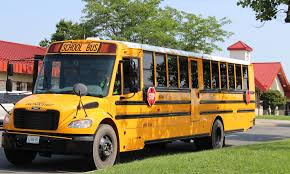
THE “school run” has become a familiar concern for many parents in Harare and Zimbabwe at large.
While some worry about managing their schedules to pick up their kids, others are concerned about the costs and logistics of hiring transporters.
Interestingly, many parents are willing to send their children to schools far from home, often travelling long distances from townships like Chitungwiza, Kuwadzana and Mabvuku to attend schools in more affluent areas like Harare’s Eastlea, Highlands and Malbereign.
This trend is largely driven by the desire to provide children with access to supposedly better education, sports facilities and environments — a legacy of the country’s historic Group A schools.
However, it’s intriguing to note that children from the same neighbourhoods are being sent to schools in distant, more affluent areas, essentially replicating the same social dynamics and environments they come from. A story for another day!
However, research suggests that learning far away from home can pose significant challenges for children.
Travel time and fatigue
One of the most obvious drawbacks of learning far away from home is the lengthy daily commute.
- Distance endurance: When school is far away
Keep Reading
Spending extended periods of time in a vehicle can lead to physical and mental exhaustion, affecting a child’s ability to focus and engage in the learning process.
Moreover, lengthy commutes can impact a child’s extra-curricular activities, social life and overall well-being.
Imagine how a child is expected to be fresh at 8 in the morning after waking up four hours earlier to prepare, and get shaken by the potholed roads and delayed by roadblocks.
Vulnerability to abuse and exploitation
In Zimbabwe, children commuting to school may be exposed to alarming risks.
There have been reports of children being physically or sexually abused by their mass transporters, who are often referred to as “uncles”.
These children may also face the threat of kidnapping, as highlighted by the disturbing incident in Mashonaland East province, where a driver was caught with children from Harare, more than 50km away.
Furthermore, the risk of accidents when commuting is an ever-present concern.
Social and emotional implications
Attending a school far away from home can limit opportunities for socialisation, community engagement and outdoor play.
Children who spend more time commuting may have fewer chances to participate in local sports teams, clubs or volunteer work, potentially hindering their social skills and emotional development.
Furthermore, being away from family and friends for extended periods can lead to feelings of loneliness, isolation and disconnection.
Logistical complexities
Longer distances between home and school can create logistical challenges for families.
Parents may struggle to attend school events, volunteer, or respond quickly in case of emergencies.
This can lead to feelings of guilt, anxiety and stress, ultimately affecting the whole family’s dynamics.
Academic performance and motivation
While some children may thrive in a school environment far away from home, research suggests that lengthy commutes can negatively impact academic performance and motivation.
Fatigue, stress and decreased opportunities for socialisation can all contribute to decreased academic achievement and a lower sense of motivation.
While attending a school far away from home can offer benefits like access to better resources or specialised programs, it’s essential for families to carefully weigh these advantages against the potential drawbacks.
By understanding the challenges associated with learning far away from home, families can make informed decisions that prioritise their child’s well-being, academic success and safety.










